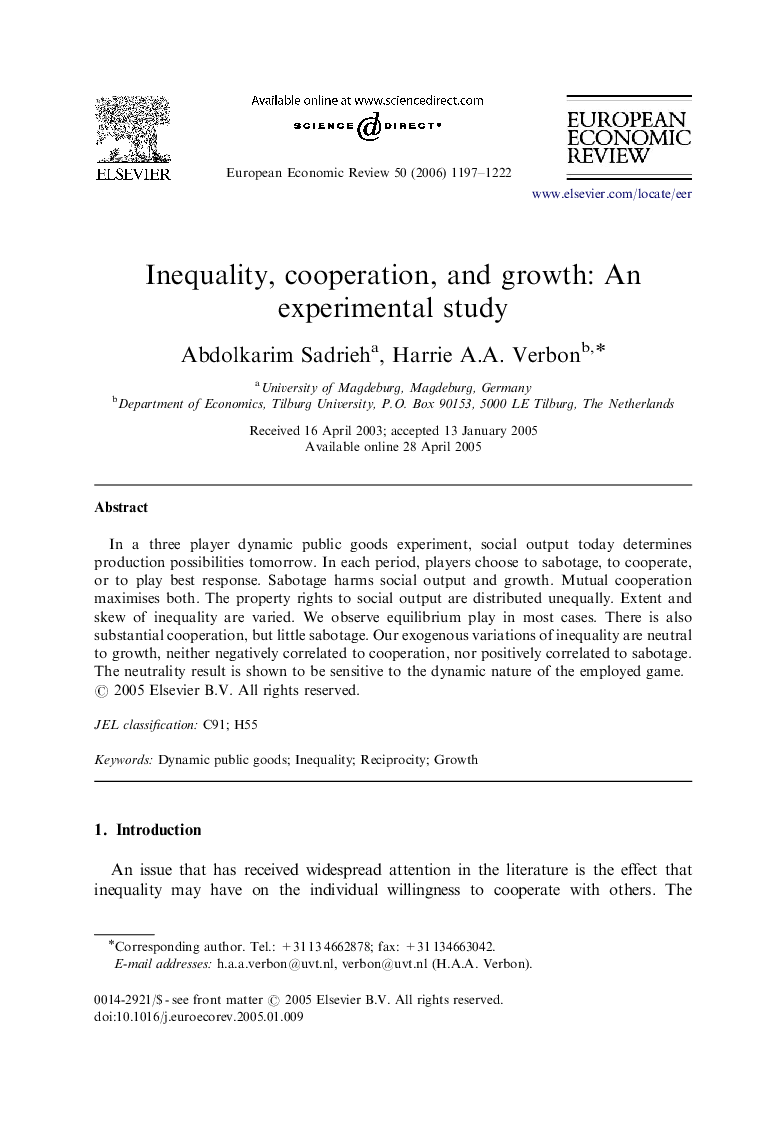| Article ID | Journal | Published Year | Pages | File Type |
|---|---|---|---|---|
| 5067582 | European Economic Review | 2006 | 26 Pages |
Abstract
In a three player dynamic public goods experiment, social output today determines production possibilities tomorrow. In each period, players choose to sabotage, to cooperate, or to play best response. Sabotage harms social output and growth. Mutual cooperation maximises both. The property rights to social output are distributed unequally. Extent and skew of inequality are varied. We observe equilibrium play in most cases. There is also substantial cooperation, but little sabotage. Our exogenous variations of inequality are neutral to growth, neither negatively correlated to cooperation, nor positively correlated to sabotage. The neutrality result is shown to be sensitive to the dynamic nature of the employed game.
Keywords
Related Topics
Social Sciences and Humanities
Economics, Econometrics and Finance
Economics and Econometrics
Authors
Abdolkarim Sadrieh, Harrie A.A. Verbon,
